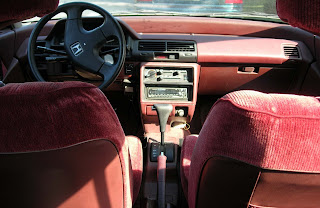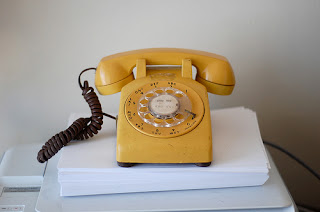Saving Money on Car Ownership: Why New Cars Don't Save You Money
 A friend of mine, whom I generally agree with on all matters financial, does have one belief that I have to disagree with. He thinks that once a car surpasses 100,000 miles or so, the costs of having to repeatedly fix the vehicle aren't worth it, and that it makes more sense to trade in the old car and buy an almost new one. I don't think this is the best strategy for saving money, however.
A friend of mine, whom I generally agree with on all matters financial, does have one belief that I have to disagree with. He thinks that once a car surpasses 100,000 miles or so, the costs of having to repeatedly fix the vehicle aren't worth it, and that it makes more sense to trade in the old car and buy an almost new one. I don't think this is the best strategy for saving money, however.Some years, if not most years, older cars will require $600 to $2000 or more on repairs like rebuilding the transmission, replacing worn suspension parts, or replacing the timing belt. With a new car, you'll still have to cover the occasional repair that isn't covered by the warranty, and after just a couple of years, the warranty will run out and you'll be responsible for everything. On top of that, you've got a monthly car payment plus interest, or a gaping hole in your bank account from a new car that you bought with cash (cash that could have been earning interest). Assuming a modest car payment of $350 per month, that's $4200 a year before you've even fixed anything. Also, insurance premiums are much higher for newer vehicles than for older vehicles, in part because you'll want collision coverage, which isn't necessary for an old car with little monetary value (since it will almost surely be totaled in the event of an accident).
This argument doesn't work for all vehicles, however. Sadly, some brands just aren't built to last. The case for buying an old car is much more valid when it comes to reliable cars like Hondas, Toyotas, Mazdas, Volvos, and Nissans (if you look around, you'll notice that almost every very old car on the road is one of these brands).
Also, the costs of owning a new car versus an old car can't take intangibles into consideration. Important things to consider in this category include:
-How comfortable do you feel driving an older car?
-Will other people who ride in your car frequently be comfortable and safe in an older car? (If you choose a Volvo, the answer is probably yes.)
-Does your career require a certain type of vehicle? In certain professions, driving a luxury vehicle is considered part of the job description.
-How much pride do you take in the type of vehicle you drive?
I was originally planning to purchase a newer vehicle because I feared the high repair costs and unreliability of an older vehicle. It was a fluke that I ended up purchasing a twenty-year-old Honda, and it was meant to be a temporary solution at the time. However, two years later, my fears haven't been justified--driving an older car has provided me with a surprising peace of mind. I feel very comfortable driving an older car because my car is smaller than almost anything they make today, which makes it easy to maneuver and park, and I feel like criminal types probably won't mess with me if I don't look like I have anything for them to take. I also don't worry as much about getting into an accident, because my car is worth so little, and I've long accepted that any accident would result in my car being totaled by my insurance company. I don't do much freeway driving or stray very far from home, so the reduced safety of my older, smaller car and the possibility of breakdowns aren't major concerns for me. Also, I'm not very image conscious, so it doesn't bother me that 90% of cars on the road are nicer than mine. For all of these reasons, I would actually feel much less comfortable driving $15k down the street.
Just because driving an older car can save lots of money doesn't mean it's the right choice for you. If an older car isn't for you, I'd like to point out one thing my friend definitely has right: purchasing a pre-owned car. Brand-new cars lose a significant percentage of their value the minute you drive them off the lot. By purchasing a car that's about a year old, you retain many of the benefits of new car ownership, such as excellent physical condition, warranty coverage, and low repair costs, while achieving significant savings. If you do want to own a new car, buying a year-old car is really the way to go. There are bargains to be found on cars like this by purchasing through a rental agency that sells their cars, such as Hertz. Since car renters expect excellent reliability and cleanliness in a rental car, these cars tend to be very well-maintained.
My stance is generally that the whole point of having disposable income is to enjoy it. If you're paying your bills on time, providing for those who depend on you, making regular contributions to your retirement fund, and have a comfortable emergency fund, there's nothing wrong with buying a newer, more expensive car. You work hard for your money, and you should enjoy it in whatever way is most enjoyable for you, whether that's hoarding it in the bank or buying a new toy.


Comments